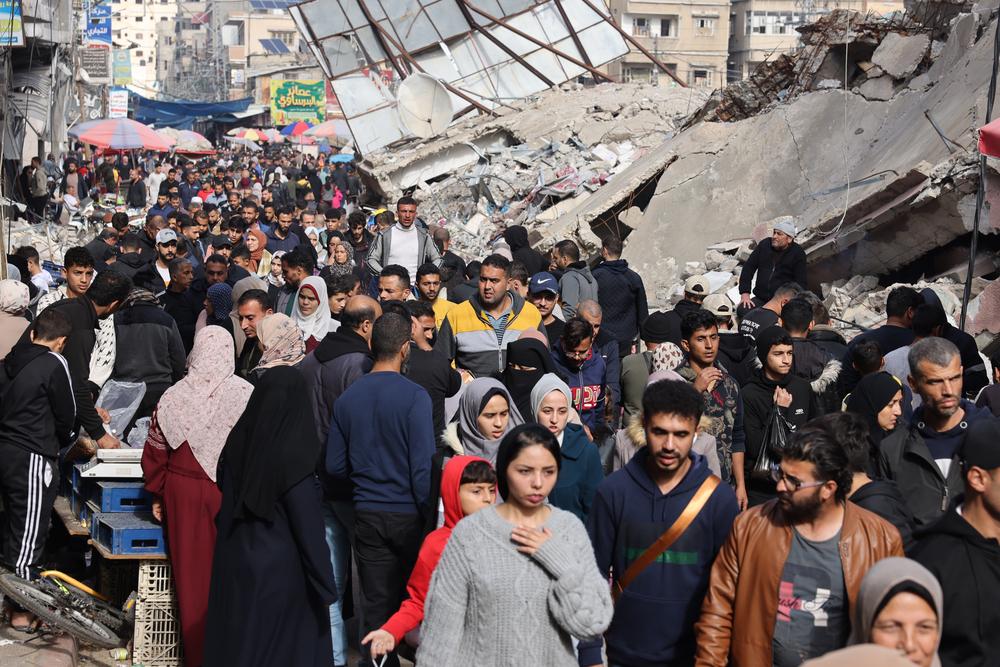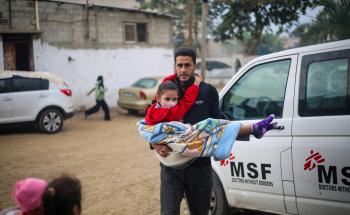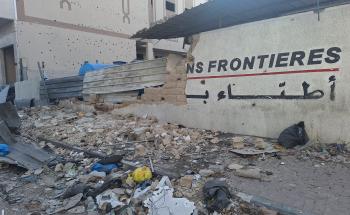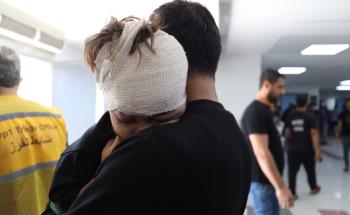The healthcare system in Gaza, Palestine.
Gaza’s healthcare system has been devastated, with men, women and children at increasing risk of acute malnutrition. Their physical and mental health is deteriorating rapidly. This is according to a report released today by Doctors Without Borders (MSF) entitled Gaza’s Silent Killings: The destruction of the healthcare system and the struggle for survival in Rafah.
More than six months into the war in Gaza, the devastation extends far beyond those killed by Israeli bombardments and airstrikes. MSF describes the massive struggle faced by Palestinians in Gaza today to access medical care and warns of large numbers of preventable deaths caused by disruptions to critical healthcare.
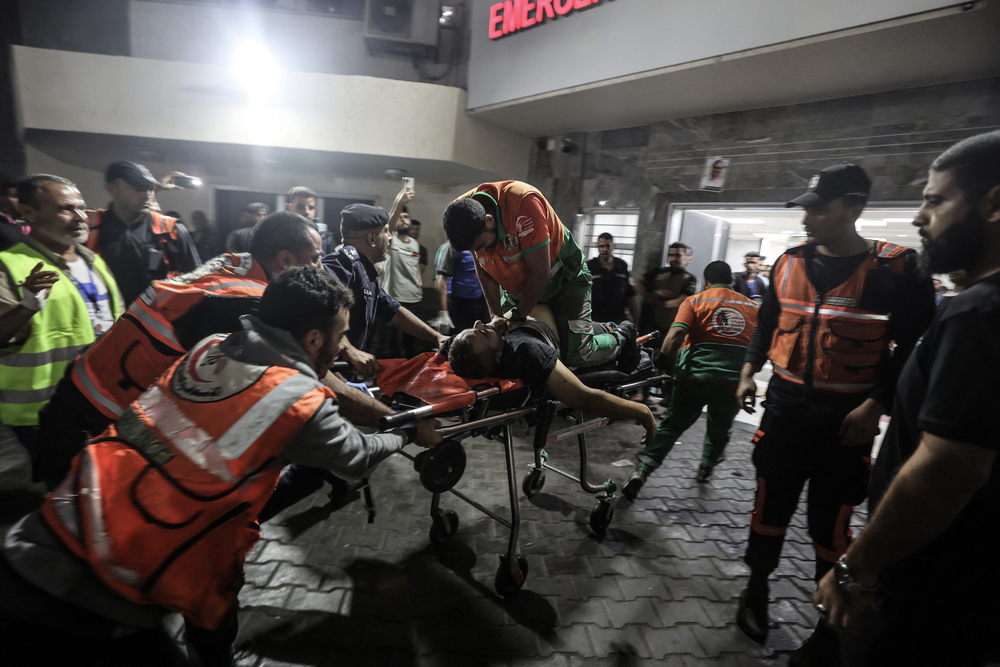
Gaza's Silent Killings due to lack of access to medical care
Inhumane living conditions
“How many children have already died of pneumonia in overwhelmed hospitals?” asks Mari-Carmen Viñoles, head of MSF’s emergency programmes. “How many babies have died because of preventable diseases? How many patients suffering from diabetes are left untreated? What about the deadly consequences of the closure of kidney dialysis units in attacked hospitals? These are the silent killings of Gaza not reported in all this chaos, caused by the collapse of the healthcare system across Gaza.”
MSF teams working in Rafah report that the decimated healthcare system and inhumane living conditions also raise the risk of disease outbreaks. This includes malnutrition and the long-term impact of psychological trauma. MSF warns that a military incursion in Rafah, on top of the current humanitarian crisis in Gaza, would be an unfathomable catastrophe. We also call for an immediate and sustained ceasefire.
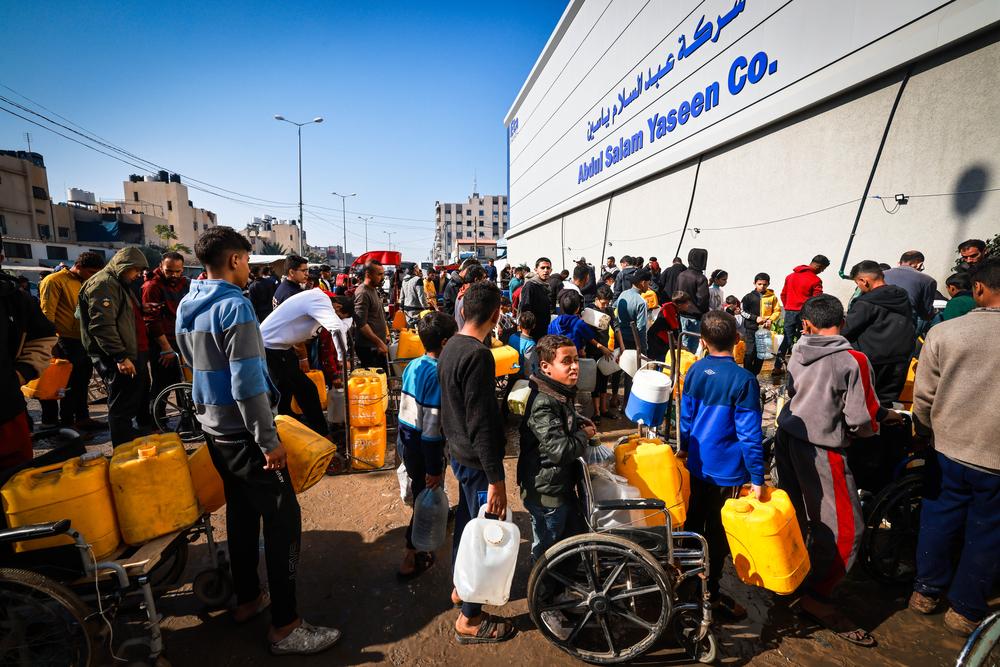
Living conditions in Rafah worsen health issues.
Living conditions in Rafah today are not conducive to survival, says MSF’s report, drawing on medical data and patient testimony. There is a desperate shortage of clean water for drinking or bathing. At the same time, rubbish and raw sewage accumulate in the streets in this tiny wedge of land. This land now hosts more than one million people who were forcibly displaced from the north of Gaza.
Across just two primary healthcare centres run by MSF in the Al-Shaboura and Al-Mawasi areas, our teams provide an average of 5,000 medical consultations weekly. Many of them are linked to people’s sub-standard living conditions. Over 40 per cent of these consultations are for patients with upper respiratory tract infections. MSF has seen an increasing number of suspected cases of hepatitis A. In the last three months of 2023, diarrhoeal illnesses reported among children under five were 25 times higher than during the same period in 2022. Between January and March 2024, MSF teams treated 216 children under five for moderate or severe acute malnutritional conditions. These conditions were almost absent before the current conflict.
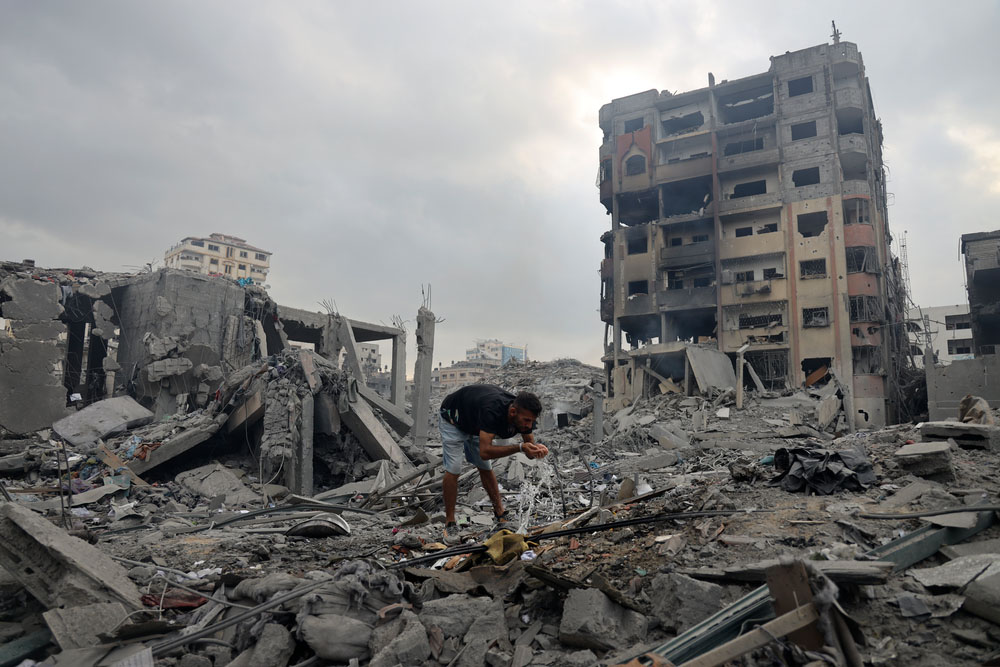
Here's what will happen if Israel attacks Rafah Hospital in Gaza.
Hospitals are overwhelmed in Gaza
With hospitals overwhelmed with trauma patients, people with other types of medical needs, such as pregnant women with complications and people living with chronic diseases, are often unable to receive the care they require. In Emirati Hospital, where MSF is supporting the postpartum department, medical teams struggle to deal with close to 100 deliveries a day. This number is five times more than before the war. In MSF’s clinics, consultations for hypertension, diabetes, asthma, epilepsy and cancers have been increasing as patients seek monitoring and medication. However, if their condition worsens and they require specialised medication or equipment, which are increasingly difficult to obtain in Gaza, little can be done for them. Many medical referrals in Gaza today are delayed or are simply not possible.
The mental health of Gaza's population
The mental health of Gaza’s population – including medical staff – is also in tatters. Most patients arriving at MSF clinics have symptoms related to anxiety and stress, including psychosomatic and depressive conditions. Some people caring for family members with severe mental health disorders have resorted to excessive sedation. This helps keep them safe and prevents them from harming themselves or others due to the lack of specialised services still functioning in Gaza.
For MSF, trying to support Gaza’s devastated healthcare system has been extremely challenging due to the insecurity. MSF has also faced substantial challenges in bringing medical supplies and humanitarian aid into Gaza due to delays and restrictions by Israeli authorities. These are described in detail in the report’s annex.
“As an international emergency medical organisation, we have the expertise and the means to do much more and scale up our response,” says Sylvain Groulx, MSF emergency coordinator. “Palestinian medical staff are highly skilled and only need to be given the means to work in acceptable and dignified conditions to treat and save lives. But today all this remains absurdly impossible. Without an immediate and sustained ceasefire and the entrance of meaningful humanitarian assistance, we will continue to see more people die.”
ENDS
